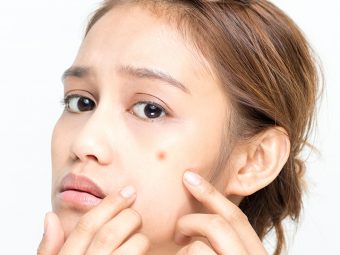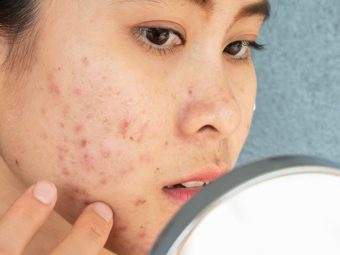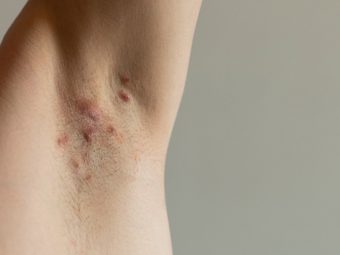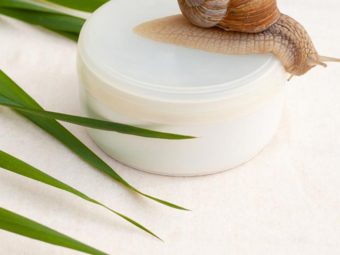[ad_1]
Many of us know the frustration of dry, itchy skin, especially during winter. This type of skin can look scaly and cracked all the time. This can be due to several reasons. Causes like climatic conditions, lifestyle issues, and other underlying skin conditions can cause dry and itchy skin. Thankfully, it can be treated using home remedies and over-the-counter treatment options.
In this article, we will tell you everything you need to know about the various causes, risk factors, and treatments for dry and itchy skin. Keep reading to know more!
Types And Causes Of Dry, Itchy Skin
Dry skin can happen to anyone at any age. It looks rough, scaly, or flaky. In some cases, it may lead to itching too. From the weather to the amount of moisture present in the skin, many reasons can lead to dry and itchy skin.
Dry skin may also lead to skin inflammations and rashes when scratched. This often leads to skin irritation or dermatitis. Let’s look at the most common causes of dry, itchy skin:
1. Contact Dermatitis
This condition is also called contact eczema. It develops when your skin comes in contact with an allergen, leading to an allergic reaction. Irritants like friction, occlusion, detergents, nickel, fragrance mix, chromium, shampoo, jewelry, hearing aids, and formaldehyde can cause contact dermatitis. Poison ivy is considered the most common cause of allergic contact dermatitis in the United States (1).
2. Atopic Eczema
This condition is a result of abnormalities in the epidermis and immune system. It leads to dry and itchy skin. People with atopic eczema have sensitive skin. Environmental factors, genetics, and food hypersensitivity may be the cause of atopic eczema (2). It most commonly occurs behind the ears or the area of the ear that meets the face.
3. Seborrheic Dermatitis
This condition occurs in areas with sebaceous glands that produce oil, including the ears. Usually, the lesions appear on the ears, face, scalp, upper chest, and back (3). The skin may turn red and crusty. This type of eczema in and around ears results in scaling, redness, and even crusty cracks.
4. Asteatotic Dermatitis
This condition results in dry and fissured skin. It occurs due to epidermal water loss (4). It appears mainly in the winter months due to dry conditions. It is also common in the elderly.
5. Athlete’s Foot
This fungal infection turn your feet dry and scaly. It is characterized by itching, flaking, and fissuring of the skin (5). The skin between the toes and all over the foot may turn soggy, red, dry, and white. Wearing occlusive (non-breathable) shoes for long periods can result in athlete’s foot. Even sharing washing facilities (like the showers at the gym) increases the risk of infection.
Besides these medical causes, factors like your lifestyle, health, age, and climate may also cause skin dryness. The signs and symptoms of dry and itchy skin vary depending on the cause. Read on to find more about the symptoms associated with it.
Signs And Symptoms Of Dry Skin
The symptoms accompanying dry skin vary depending on the cause. A few common signs and symptoms are:
- Itchiness
- Peeling
- Redness
- Flaking or scaling of the skin
- Cracked or rough skin
- Bumps, spots, or blisters
These are the few common symptoms you experience when you have dry and itchy skin. Since it may occur due to some underlying health conditions too, you must get it diagnosed before treating it. Find out more in the next section.
Diagnosis Of Dry, Itchy Skin
Dry skin is diagnosed by its appearance. Your doctor may ask for your medical history. They may physically analyze your skin and ask about the health issues that run in your family. Depending on the symptoms, your medical provider may prescribe tests like:
- Allergy skin test.
- Blood test to evaluate diabetes or kidney issues.
- Skin biopsy to test for skin conditions like eczema.
Dry skin can occur to anyone at any age. However, certain groups are more prone to it. Read on to find out the risk factors for dry and itchy skin.
Risk Factors For Dry And Itchy Skin
There are many factors that may increase your chances of dry skin. You may get dry and itchy skin if you:
- Live in a cold or dry climate.
- Have a family history of skin issues, kidney problems, or thyroid or hormone disorders.
- Have a job that makes your skin wet most of the time, like a swimming instructor.
- Are allergic to harsh detergents, soaps, or fragrances.
- Take long and hot showers.
- Are 40 or older.
Your treatment will be based on the diagnosis. Keep reading to learn about the treatments for dry and itchy skin.
Treatment For Dry, Itchy Skin
Both home remedies and medical treatments can relieve skin dryness and itching. If you consult a healthcare provider, you may be recommended to use moisturizers and prescribed some medications.
Prescription medicines for managing dry and itchy skin include:
- Steroids like hydrocortisone
- Antibiotics
- Topical antiseptics
- Antihistamines
- Moisturizing creams containing alpha-hydroxy acids or retinoids
You can also try out the following home remedies:
- Apply moisturizer or cream that contains humectants, ceramides, or emollients.
- Apply a cold compress to the affected area.
- Use warm water while taking a shower. Avoid using hot water for showering and washing your face, hands, etc.
- Pat your skin dry instead of rubbing it with a towel.
- Restrain from scratching the affected area.
- Use a humidifier to increase moisture in the air in your house.
- Wear gloves to protect your hands from household irritants.
Read the next section for some tips to prevent dry and itchy skin.
Prevention Tips For Dry, Itchy Skin
To prevent your skin from becoming dry and itchy, especially during winter, you can do the following:
- Limit your showers/baths to once every other day.
- Drink enough water.
- Avoid contact with harsh chemicals, soaps, fragrances, and detergents.
- Always keep your skin moisturized.
- Wash your face or take a bath only with lukewarm water.
- Use natural fiber clothing.
- Apply sunscreen whenever you step out.
- Stop smoking.
Do not scratch your skin when it itches as it may cause more irritation and even lead to infections. Consult a doctor if you find it difficult to manage.
When Should You See A Doctor?
Consult a dermatologist if:
- Your skin looks infected and becomes red and swollen.
- The area is painful to touch.
- Your skin itches constantly.
- The itching continues for weeks, even after following the self-care measures.
- You develop fever or night sweats.
Consult your doctor if none of the home remedies and over-the-counter treatment options show any improvement.
The Bottom Line
Dry and itchy skin is not a serious health concern. But, it can be caused due to underlying health conditions and allergies. Figuring out the reason behind your dry skin can help you manage and prevent it. In most cases, keeping your skin moisturized is the ultimate solution to manage it. However, you may consult a doctor if the skin dryness and itching persists despite taking various measures to control it.
Frequently Asked Questions
Is Vaseline good for dry itchy skin?
Yes, petroleum jelly is an occlusive that helps retain moisture in your skin and prevents dryness (8).
Can you use vinegar for dry itchy skin?
Yes, vinegar has antimicrobial and antiseptic properties that may reduce itchy, dry skin (9).
Does coconut oil help dry itchy skin?
Yes, coconut oil is a moisturizer that helps reduce dryness and flakiness. It is also used to manage skin conditions like eczema which causes dry and itchy skin (10).
Is rubbing alcohol good for dry itchy skin?
No, rubbing alcohol may dry out your skin further and aggravate your itching.
Key Takeaways
- While dry skin is common during winters, it may be a sign of underlying conditions like eczema or athlete’s foot.
- Genes, environment, or harsh soaps and detergents can contribute to rough, cracked, itchy skin.
- Avoid dry and itchy skin by moisturizing, applying sunscreen, and drinking enough water.
Sources
Related

LATEST ARTICLES
[ad_2]
















